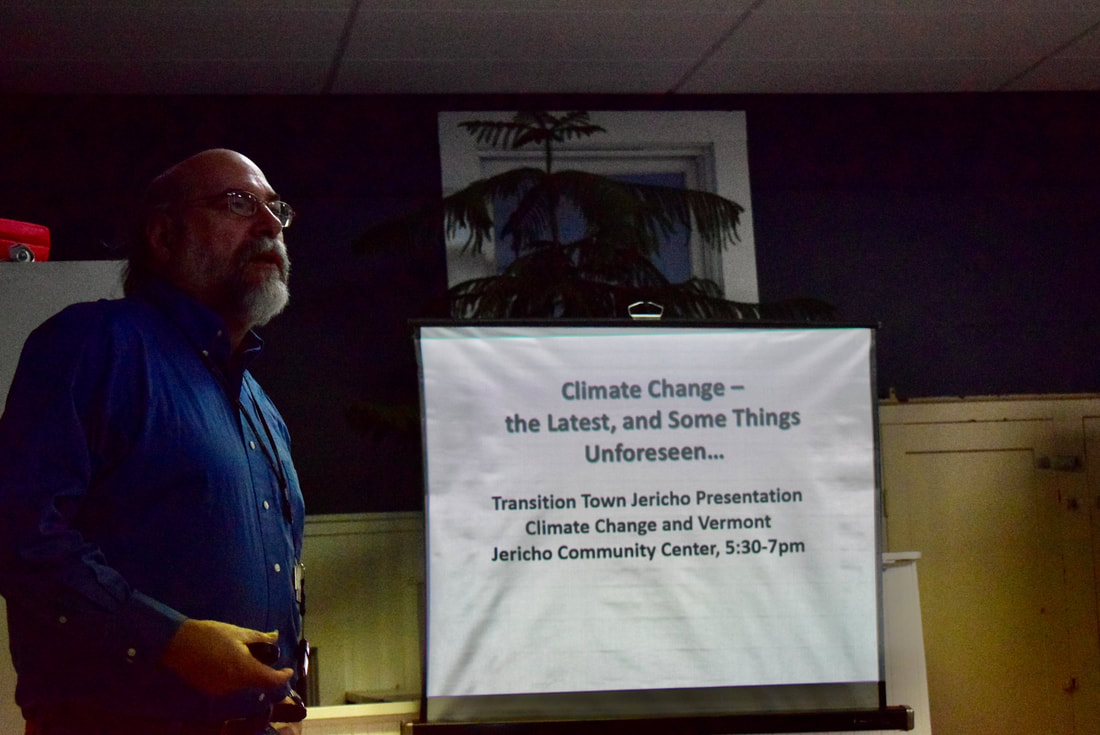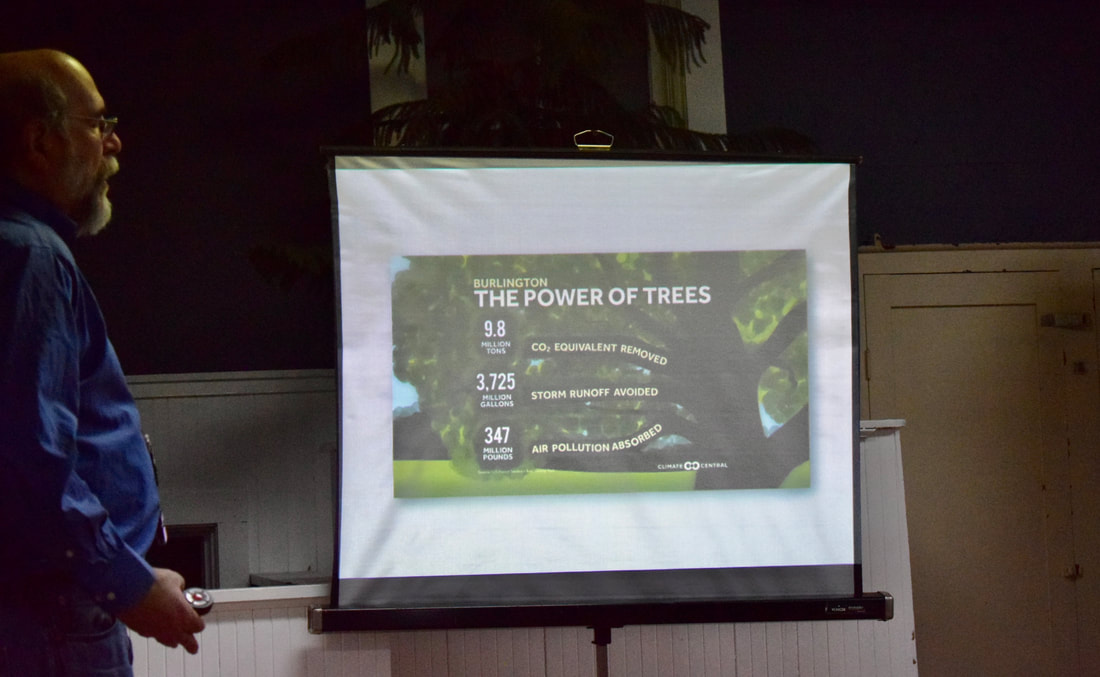|
Laura reporting:
Nice turnout of 33 folks at yesterday’s climate change talk, given by Roger Hill. Roger has been a meteorologist in Vermont since 1987, working mostly as a private forecaster and more recently, much in demand as a speaker on climate change. Having lived in various places, Roger says that with the varying seasons and changing climate of Vermont, we ‘live the weather’ here. A murmur of agreement was heard from audience. Largely spared from the most dire consequences, Vermonters are nonetheless affected by worldwide patterns; for example, melting arctic ice has contributed to wetter winters; less ice cover in the Great Lakes adds more cloudy days to Vermont via prevailing westerly winds. Roger began by stating the problem, saying February 2020 is the 421st consecutive month with global above average temperatures. He added we’re presently at 414 ppm carbon dioxide (co2), and if you consider methane and aggregates, we are nearing 500 ppm. Regardless, levels are the highest they’ve been in three million years. Roger explained that co2 works like a thermostat. Sunlight causes the molecules of co2 to ‘dance’ which creates more heat, causing temperatures to rise. He said as the earth’s atmosphere heats up, it holds more water vapor. Thus when it rains, it rains harder; when it snows, it snows harder. Dry areas such as deserts get drier and wet areas are more prone to serious flooding. He added that surprisingly, earth would be in a cooling phase right now if it weren’t for human impact. He showed pictures of tar sands and off shore drilling, saying what we know intuitively; we need to stop it at the source! Ironically since 2011, carbon emissions from energy use have been rising at the fastest rate ever, with humans stuck in an ‘anti-change bias’. Roger stated emphatically that it’s the speed of climate change that’s a major concern; earth’s inhabitants simply can’t adapt quickly enough. Patterns are hard to decipher, he said; climate change is not linear and is more like a staircase. The overall picture is clear; the last five years were the hottest on record, globally. As far as as solutions go, Roger talked about the oceans (which take in a whopping 94% of earth’s heat) Adding quantities of iron to the water would stimulate more phytoplankton which sequester carbon. Or pulling co2 from the atmosphere, and burying it until it becomes solid and can be used as cement, for example. Frankly, these sounded like pie-in-the-sky solutions; Roger himself promotes electric vehicles, having just purchased his own electric hyundai kona a few days ago! Asked about his predictions, Roger said Vermont is in a ‘sweet spot’. Through at least 2040, we shouldn’t have too many extremes: expect continued changes in first and last freeze dates, increases in snowfall. He added we should be ready for unexpected variables. Globally, Roger predicted Greenland could become the next polar vortex once the Arctic completely melts and said places like Australia and California are currently ‘canaries in the mine’ for abrupt climate change. Comments are closed.
|
Click to set custom HTML
|


 RSS Feed
RSS Feed
